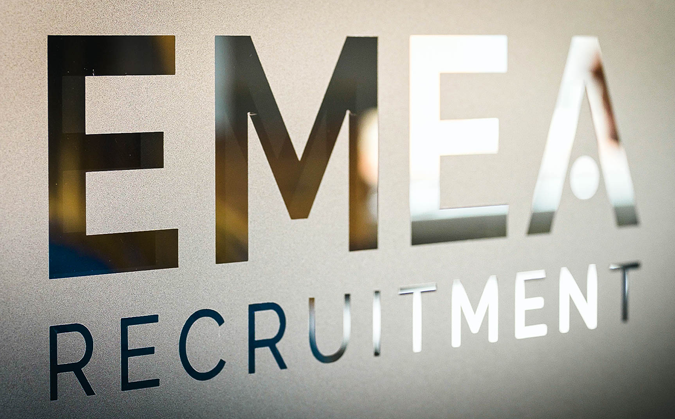Benedikt Klaus - Senior Director - Global Sales & Marketing Controlling at Nexperia

What was the best/worst interview experience you have had?
Best interview experience must have been my first interview for AkzoNobel, and one of the first interviews in my life. I was travelling in the US, met the senior director for audit - an old school American gent, three-piece suit and all - and we had lunch together at Chicago O’Hare airport. He was very tough in his questions and had the best poker face. In the end, I had no idea where I stood. He walked me to the gate, and then asked the TSA Agent, “Where can my colleague check in?”
The worst interview process I had was at a company (I will not name and shame), but one that, after the fact, I have heard other similar stories about, so in the end I think even this cloud had a silver lining. What was so strange is that the entire interview process went well, up to and including the interview with the GM, and I had been requested to provide references. I provided these and had been told that I needed to sign by the end of the next week, to make sure that I would be available for the role in good time. I had drafted and printed my resignation letter at work, and was literally sitting on my desk, just waiting for the contract, when things went quiet. I heard nothing until the deadline had passed, and was simply told that the GM had changed his mind and thought I was too corporate for the role. Turned out they were too afraid to challenge him, so burned me.
How does your company work to retain high potential employees?
Given that I have just joined Nexperia, I cannot yet answer this question for them. But, based on my prior company’s challenges, this is the million-dollar question, and it’s getting more and more important.
We had the usual mix of short and long-term incentive plans, with vetting periods. That by itself doesn’t cut it at the moment, in my opinion, especially as the vetting period is three years (which is different here at Nexperia by the way).
I think this really puts the accountability for retention with the managers/directors themselves, rather than to rely on the existing corporate structures. I am, for example, always working proactively with my team members on carving out a career plan for them in the company, to get them mentors and to make sure that they are not being forgotten when positions are being discussed.
One of the lessons I have learned throughout my career is that development plans should not (just) be for low performers, but are especially relevant for high performers in the team. I prefer for someone in my team to make a step internally than to lose them to another company. Ultimately, I believe it’s a mix of the company and the individual leaders that makes people stay; they need to feel taken care of, both in terms of now and the future development.
What changes have you seen to the employment market in the Netherlands over the years? What, in your opinion, have been the drivers for these changes?
There are two major changes in the NL labour market: the attractiveness of the Netherlands as a work location, as well as the skill requirements needed by the Finance professionals, which is a global phenomenon.
I first moved to the Netherlands in 2007 and being an expat at that time was still not standard. English was spoken, of course, but still the labour market, even at larger corporates, was rather locally dominated. This has changed incredibly since then, creating a seriously diverse workforce, with talent from all over the globe. Even the recent tendency by companies to reduce the classical expat has not changed this (the 30% ruling of course helps tremendously).
In the Finance field itself, the change has of course been the growth of technical skills, away from being linked to Accounting qualifications and SAP (still of course very relevant) to also include system knowledge such as Power BI or coding. When I started working, MS Office was considered a skill. When I interview people at the moment, and they do not know Power BI, I am already starting to question the choice of candidate. It’s amazing to see how new talent coming through the ranks has taken this digital leap and I am super excited to see where this can lead us as Finance, with access to all the data that’s out there. This change is driven by the availability of data and will continue to shape our profession.
What risks have you taken throughout your career and how did they help you get to the level you are at?
My first step into operational Finance (away from the ivory tower corporate roles) was as Regional Business Controller for the Nouryon Polymer Chemicals Business in Asia. I was newly married, had never worked in a Controlling role, and had been sent halfway around the world to take over and improve a Finance department, responsible for both Sales and Supply Chain Controlling. Plus my wife had to quit her job as senior manager at EY to follow me. Quite a bit of pressure… I had impressed the GM of the business as part of a divestment I had run, which had helped obviously with the interview process, but my Controlling knowledge was textbook only, not one minute of operational experience.
What I did realise though, once I got there, is that I was able to take advantage of the fact that I knew nothing, by approaching the whole process with an academic curiosity, which, combined with my project management skills, enabled me to get the team together, leverage their knowledge, thus helping me to finally build a super solid team. This made me realise the most fundamental skillset that I think any Controller should have, namely being inquisitive. If you have the right brain and ask the right ways, one can always find a solution.
If you could go back and give your younger self some career advice, what would it be?
I think the one thing I would tell myself, and what I tend to tell all people that haven’t already found the job for them, is to go into consulting for a period; it’s the way to polish the diamond that exists in all the raw talent that one has upon starting one’s career. Having spent a few years experiencing the most structured approach to thinking possible (including which colour of blue to use), it becomes much easier to adapt to new situations.
Having done a trainee program inside a company was a great experience. I saw a lot, both of the world, as well a the chemical/pharmaceutical industry, but ultimately the structured approach was not quite the same. I don’t regret my choices, but if I could go back, that’ll be it. For the rest, honestly, I would tell him to try to do (most) things like I’ve done. I’ve travelled the world, seen and worked with some amazing people, and have especially benefited from globalisation.
Who is the most inspiring person in business for you and why?
I wish I could say the CFO, but let’s be honest, that’s not really our role. We can be visionary, but this tends to be closely aligned to the real source of inspiration in any successful business, the CEO. I have been able to work with people like Hans Wijers, who truly had a vision for AkzoNobel and was driven by the desire to see this company become the biggest global player.
This was lived by us every day, and people were willing to go above and beyond to make his vision become reality. Businesses need cold numbers to survive, but to excel one needs more, and this must come from the guy at the top. One word of caution, to be truly inspiring, that leader must be authentic, and this is where I have seen things fall apart in other instances. Do what I say, not what I do has never been able to inspire anyone.
While we continue to face the realities of COVID-19, how have you seen your approach to Finance?
What we have seen during COVID has not been a major change from what I have seen during prior crises; its back to basics, weekly volume reporting, combined with more frequent and more detailed forecasting, in addition to continuous cost focus and reduction.
Going forward, I expect much of the same. We need to be as close as we can to the business, garnering information, looking at trends, trying to identify issues if and when they come. I take the positives from this, as we have been able to push through initiatives that would have taken much longer in the past, with better buy-in from the business.
Given that we rely much more on system data, without ability to factcheck via informal discussions, we have seen the need to clean up the system data, and that I take as the biggest challenge for the mid-term.
Thank you to Benedikt for speaking with our Director - Finance, Hannah Mallia.
Views and opinions contained within our Executive Interviews are those of the interviewee and not views shared by EMEA Recruitment.




You can also use your social account to sign in. First you need to:
Accept Terms & Conditions And Privacy Policy